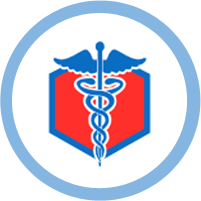
Congestive Heart Failure Treatment For Elderly

CONGESTIVE HEART FAILURE | CAUSES, SYMPTOMS, PREVENTION
There are certain conditions leading to heart failure can’t be reversed, but there are treatments that can improve the signs and symptoms and help you live longer. To improve quality of life, lifestyle changes such as exercising, reducing sodium intake, managing stress and losing weight must be implemented. One way to prevent heart failure is to control the conditions that lead to it.

CAUSES
There are multiple conditions that can weaken and damage the heart, leading up to heart failure. Some of these conditions can be present without you knowing it:
-
Coronary Artery Disease and Heart Attack – The most common form of heart disease and most common cause of heart failure. Results from the buildup of fatty deposits in the arteries, which reduce blood flow and can lead to a heart attack.
-
Hypertension (High Blood Pressure) – Your heart has to work harder if your blood pressure is high to circulate blood thought out your body. Over time, this extra work on the muscle can lead to your heart to be too stiff or too weak to effectively pump blood.
-
Faulty Heart Valves – the valves in your heart control the direction of the blood flow proper throughout the heart. A damaged valve can force your heart to work harder, which can damage and weaken it over time.
-
Myocarditis – An inflammation of the heart muscle commonly caused by a virus including COVID-19, which can lead to left-sided heart failure.
-
Congenital Heart Defects – Happens when the heart’s chambers or valves haven’t developed properly, forcing the healthy parts of the heart to work harder, which can lead to heart failure.
-
Abnormal Heart Rhythms (heart arrhythmias) – Abnormal heart rate can cause your heart to beat too fast, creating extra work for your heart to do, same applies to a heart that beats too slow.
SYMPTOMS OF HEART FAILURE
Heart failure can be ongoing (chronic) or suddenly happen (acute)
Here are the signs and symptoms that may be included:
-
Dyspnea (shortness of breath)
-
Fatigue or weakness
-
Edema (swelling) in the legs, feet, and ankles
-
Irregular or rapid heartbeat
-
Reduced ability for exercise
-
Persistent wheezing or cough with white or pink blood-tinged phlegm
-
Increased urination at night time
-
Swelling of the abdomen
-
Rapid weight gain from fluid retention
-
Nausea and lack of appetite
-
Decreased alertness or difficulty concentrating
-
Chest pain if heart failure caused by heart attack
WHEN TO SEEK EMERGENCY TREATMENT
If you think you are experiencing signs or symptoms of heart failure, go see your doctor.
Seek emergency treatment if you are experiencing any of the following:
Chest pain
Severe weakness or fainting
Chest pain, or rapid/irregular heartbeat associated with shortness of breath

